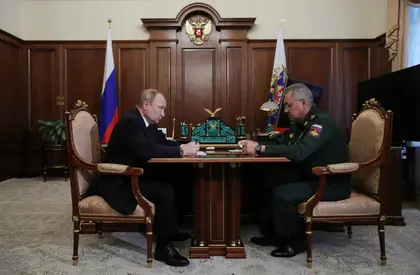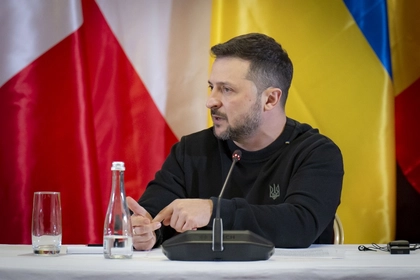Russian President Vladimir Putin show no signs of letting up in his rapacious war on Ukraine.
Immediately after Russian forces finally took the strategic Lysychansk in the Luhansk region on July 3, Putin ordered Defense Minister Sergei Shoigu to continue offensive operations along the entire frontline. East and the West army groups “must fulfill their tasks in accordance with the approved operation plans,” he commanded.
JOIN US ON TELEGRAM
Follow our coverage of the war on the @Kyivpost_official.
The Russian capture of Lysychansk signified the occupation of the whole of Luhansk rregion.
On July 4, Luhansk region’s Ukrainian governor Serhiy Haidai said that Ukrainian forces had “withdrawn from Lysychansk” in good order and without losses to prepared positions.”
Also, according to him, while the Ukrainian forces were defending the city, some 50,000 civilians were evacuated.
“Our soldiers could have held the city longer, but Russian forces, with their artillery and ammunition hugely outnumbering us, would have simply leveled it and there would have been no sense staying there,” Haidai’s official statement reads.
He stressed that the loss of Lysychansk and, subsequently, the entire region was painful, but said that it was only “one battle, not the war,” and that the withdrawal from the town without major losses was part of a “strategic maneuver” – the Ukrainian forces have regrouped in new positions in the neighboring Donetsk Region. He admitted though that around 10,000 civilians remained in Lysychansk.

N. Korean Troops Massed in Russia to Enter Ukraine War ’Soon’: Pentagon Chief
President Volodymyr Zelensky declared that Ukrainian troops would definitely retake Lysychansk “when modern weapons arrive.”
Haidai also stressed the need to get more Western arms in order to outmatch Russia’s firepower.
Meanwhile, according to Ukraine Armed Forces (UAF) reports, Russia is increasingly and indiscriminately shelling cities and villages in Donetsk Region, particularly areas around Slovyansk, as well as civilian infrastructure facilities and the Lysychansk-Bakhmut highway. Such tactics were observed at the end of the first phase of the war when Russian troops were retreating from Kyiv.
The current frontline developments and the Russian political and military leadership’s latest statements suggest the completion of the second phase. Now, the continuing missile strikes are supposed to keep Kyiv on tenterhooks while Russian forces regroup and gear up for new offensive operations in the Donbas.
Putin told Shoigu that after the Lysychansk campaign the troops needed “time to have a rest and replenish their potential.”
In pursuit of Putin’s “plan” the Russian army continues to rely on its time-tested scorched-earth tactics in reverse, which were also used to capture Severodonetsk. Russian troops entered the city after it was totally destroyed.
Two top-rank Russian commanders are known to have led the Lysychansk offensive. According to the U.S.-based think tank Institute for the Study of War, Putin entrusted the mission to Col.-Gen. Alexander Lapin, commander of the Central Military District, and Army Gen. Sergei Suvorykin, commander of Russia’s Aerospace Force.
This likely means that in prioritizing the Luhansk operation he does not trust lower-ranking officers.
You can also highlight the text and press Ctrl + Enter






